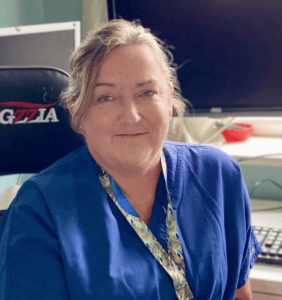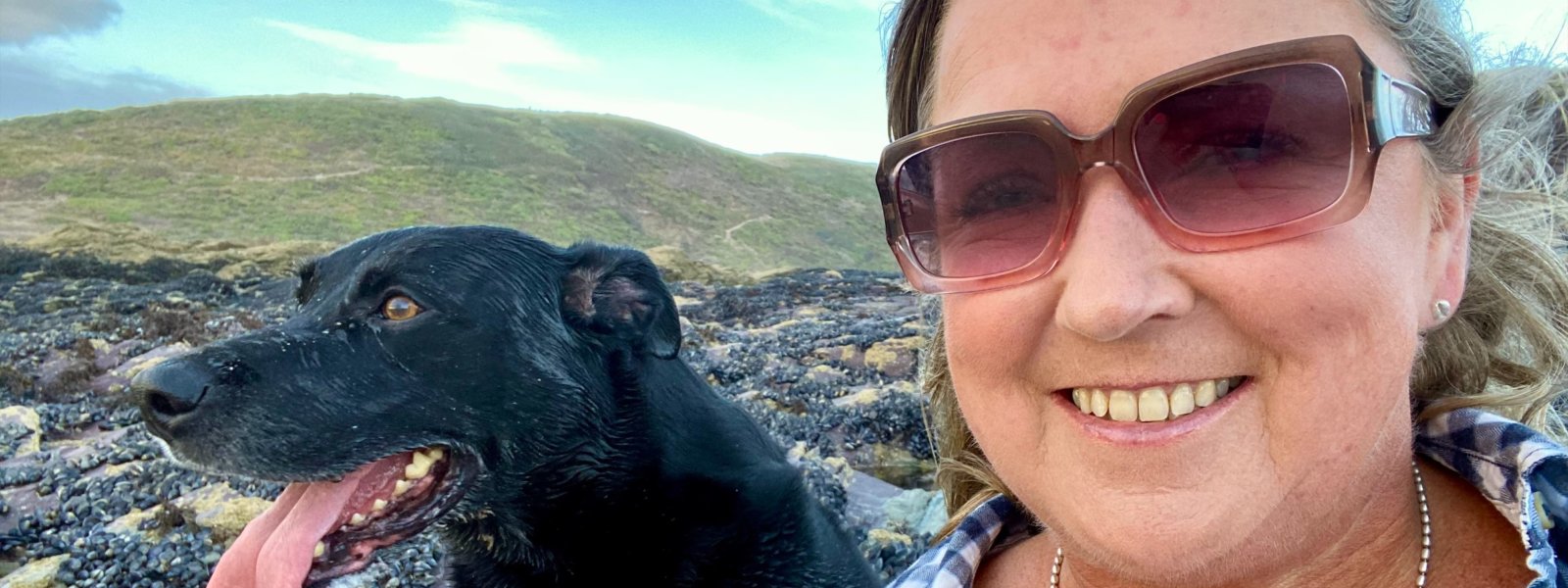Navigating PH as a healthcare professional
As an advanced nurse practitioner in cardiothoracic surgery, Tania Riches found herself on the other side of the fence when she discovered she had pulmonary hypertension. Here, the 55-year-old shares her experiences of being a patient with a rare disease, and explains why she believes the NHS has ‘a lot to learn’ from the UK’s specialist PH service…
“I first noticed increased shortness of breath during moderate exercise. I found it increasingly difficult to maintain the level of activity I had previously managed comfortably.
Over the next 12-18 months this worsened to a point where I found myself modifying the routes I would take, to avoid stairs or inclines.
Eventually people started to comment on my shortness of breath. Embarrassingly, even a very frail and sick cardiac patient I was taking to another department said, “oh dear love, you’re more out of breath then me”.
It started to affect my private life as well as my working life. I am extremely fortunate to live in Cornwall and I would normally take full advantage of everything the county has to offer, with its beautiful beaches and walks. But I found I was becoming very tired and fatigued and once again started to avoid such activities.
Unfortunately for me, this all happened during the pandemic, and consequently, trying to access the GP service was near on impossible. I also felt like they didn’t take me seriously and thought that I was just slightly overweight and unfit – ‘nothing that a bit of regular exercise wouldn’t put right’.
Eventually I managed to get them to do an echocardiogram (the results of which were normal) and I had to push for pulmonary function tests, which did show some restrictive issues.
Once again things seemed to come to a halt, and only by being assertive and persistent was I able to move things forward. Following lots of investigations, and by understanding how the system works – and my own clinical knowledge – after 15 long months I finally got a diagnosis.

By this point, June 2022, I was finding even getting dressed in the morning difficult. I am not a shy person and I have worked in the NHS for more than 30 years. I kept thinking to myself, ‘if I found this process so hard to navigate, how would someone who was less persistent and knowledgeable manage? And more importantly, how long would it take to reach a diagnosis?’
My diagnosis came as a shock, but it was also a relief to finally know what was happening to me. I knew that this was a very serious condition which would ultimately impact on my quality and length of life.
My main concerns were being there for my children, worrying if I would ever become a grandmother, and wondering whether I would have to give up work.
Even as a healthcare professional I did the worst possible thing and searched the internet on the subject. My advice is do not google! Talk to your specialist team, who will give you the most up to date, research-based information.
A lot of the information online is out of date and obsolete. I now know that so much has changed with the treatment and management over the last five years, resulting in transformative outcomes for patients.
I can honestly say I started to see a difference within about three to four weeks of starting on treatment and I have steadily improved since.
As a patient I have felt fully supported and comforted by all those I have had contact with
I have been very fortunate and not suffered any side effects from the drugs, however, I am fully aware that every patient reacts differently. I can now do everything I could do before (albeit not necessarily at the same speed) and I am very optimistic for the future.
I have been amazed by the specialist teams and the service they offer. As a patient and a healthcare professional, I believe that the specialist PH service is one that the NHS could learn a lot from.
I have been impressed by the co-ordination and multi-disciplinary team working, not only between various specialists, but also between NHS Trusts. As a patient I have felt fully supported and comforted by all those I have had contact with. Everything is geared towards supporting me as an individual.
Reflecting on the last few months, I feel strongly that awareness and understanding of this condition at primary care level needs to be raised. Once referred to the relevant specialist, reaching early diagnosis can be achieved. One of the most time-limiting issues revolves around access to investigations, as limited resources such as computerised tomography (CT) scans can result in delays.
If I was to give advice to anyone newly diagnosed with PH, I’d advise to trust your specialist team, as you are in safe hands. Don’t be afraid to ask questions and take one day at a time.”
















